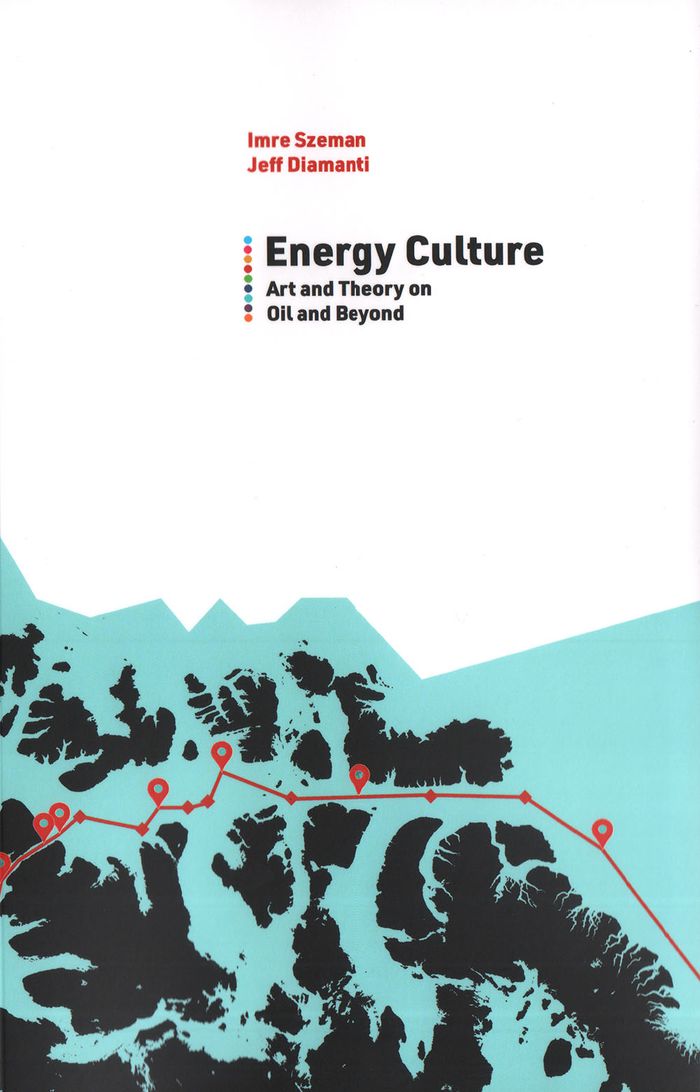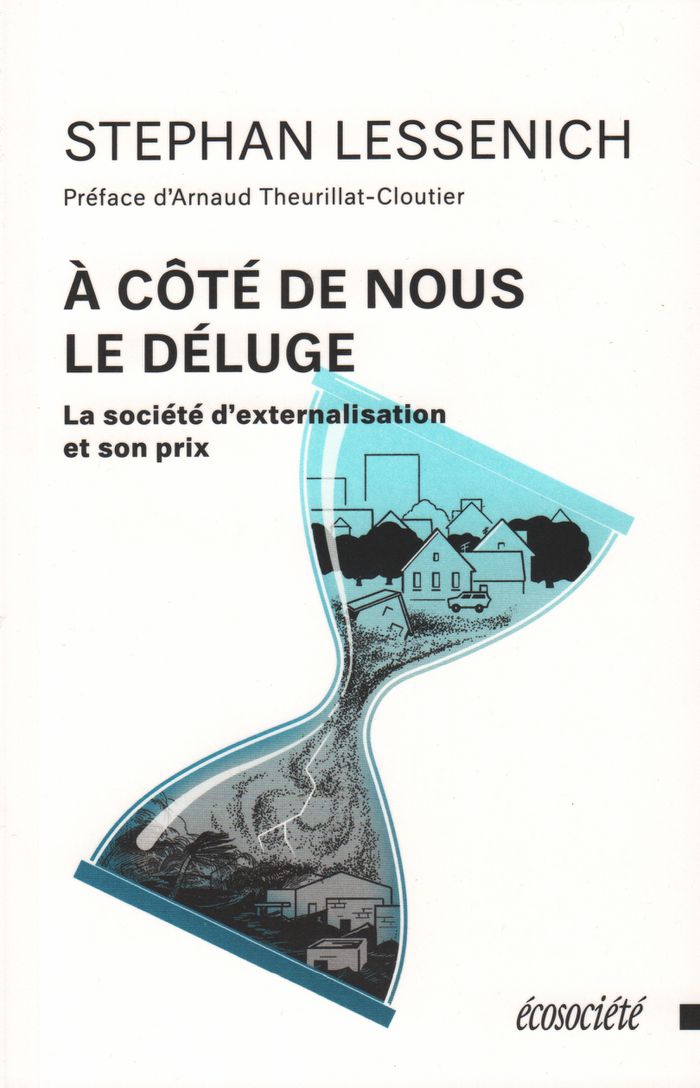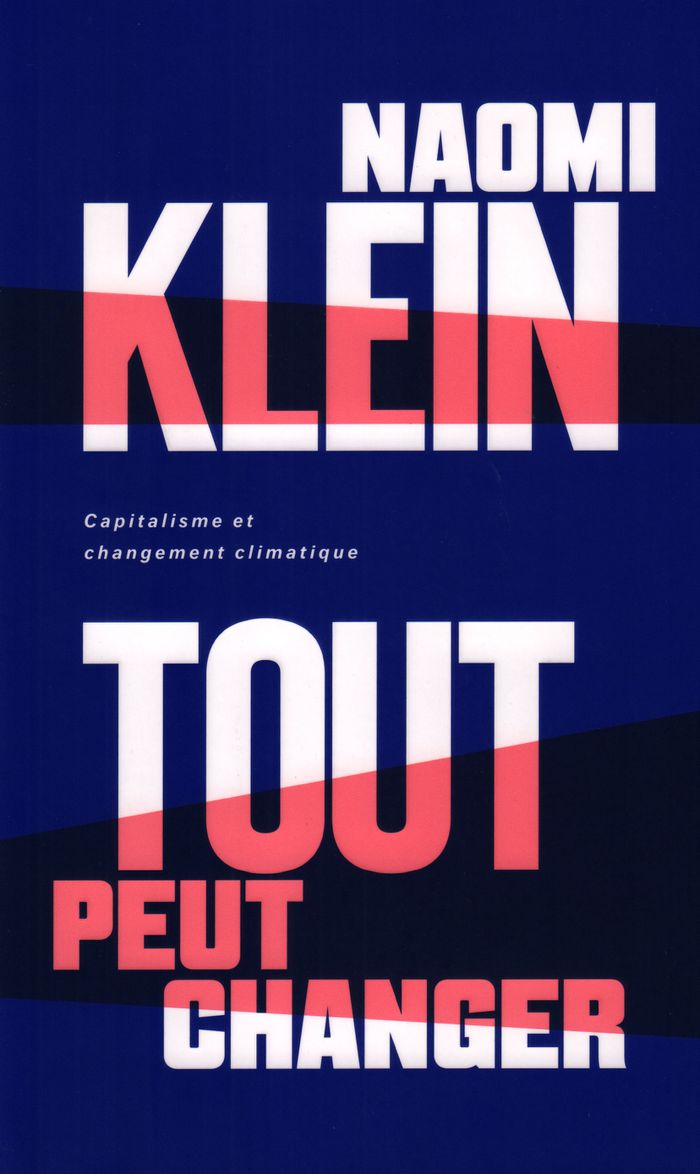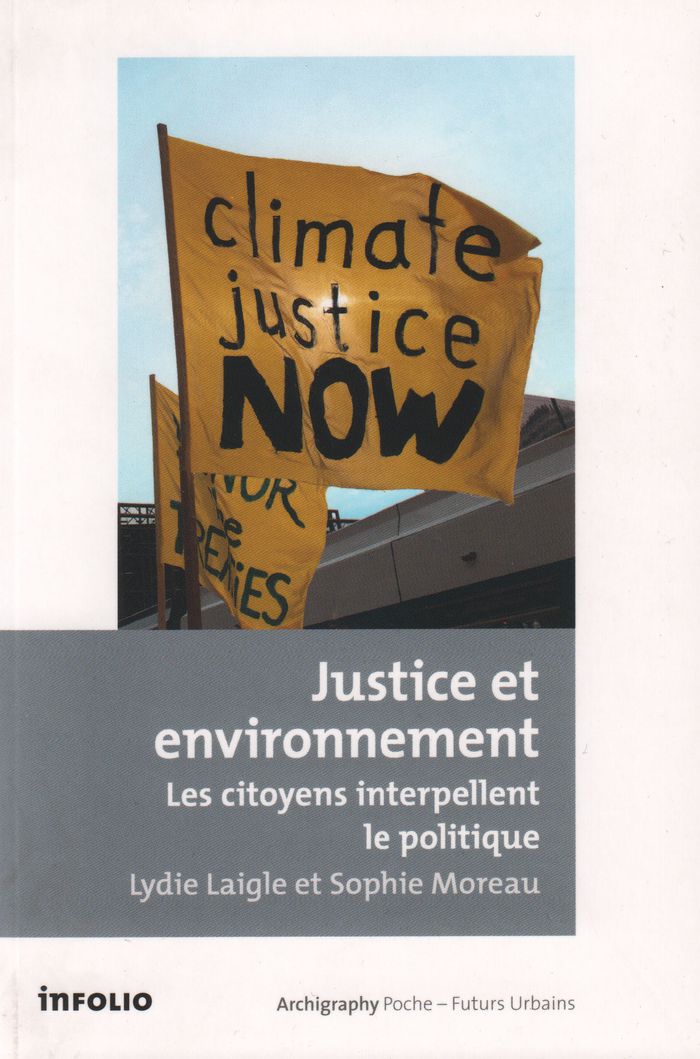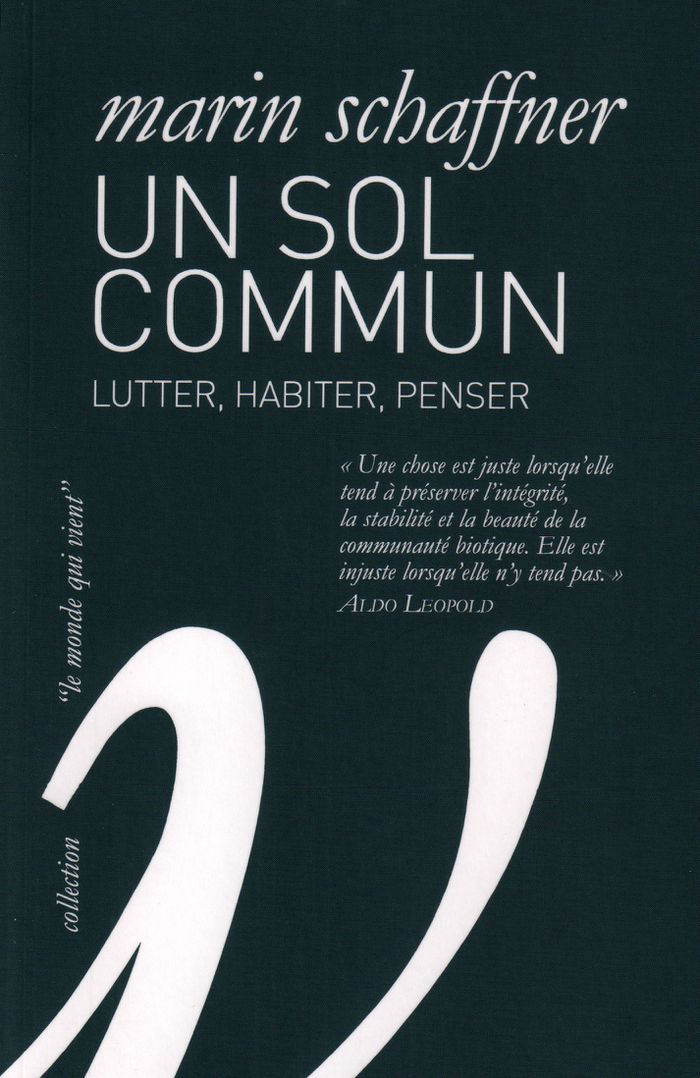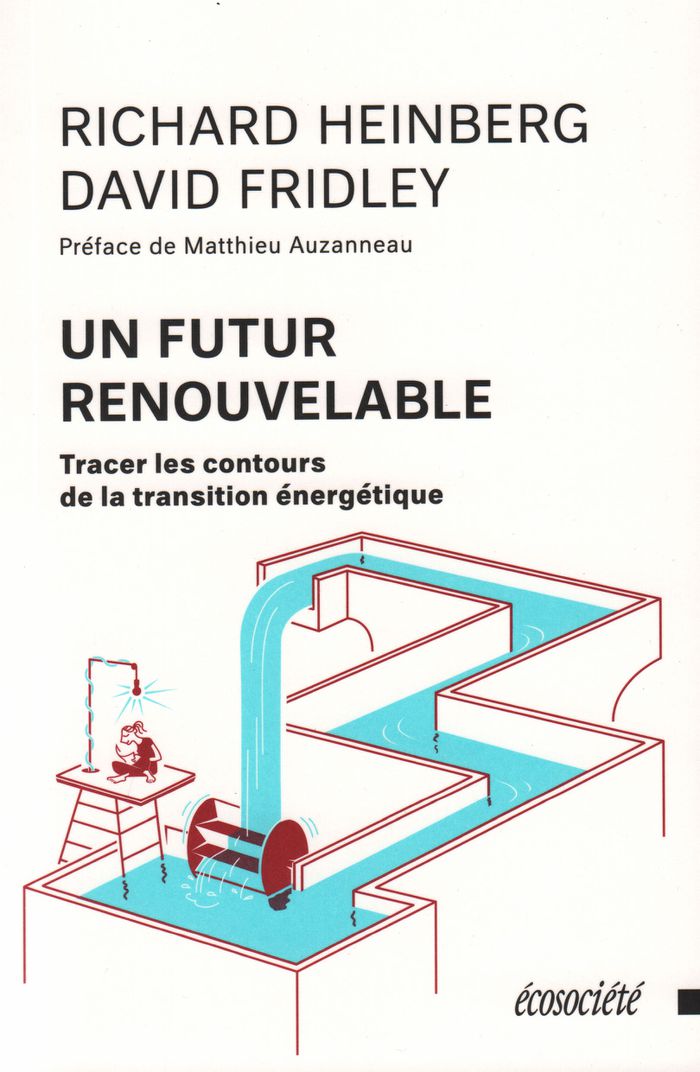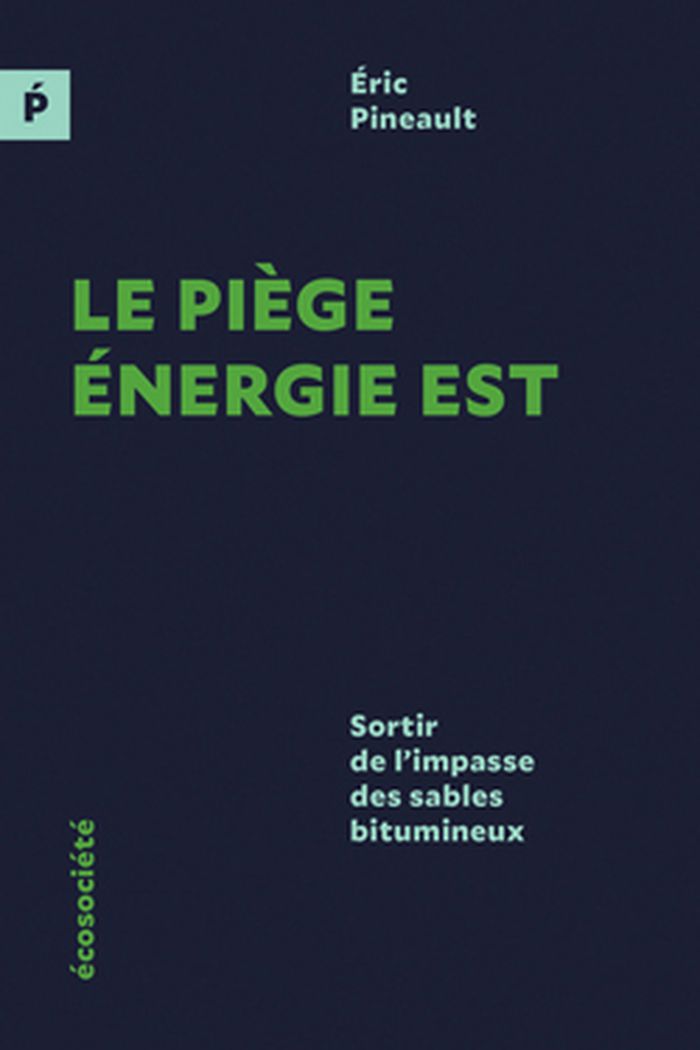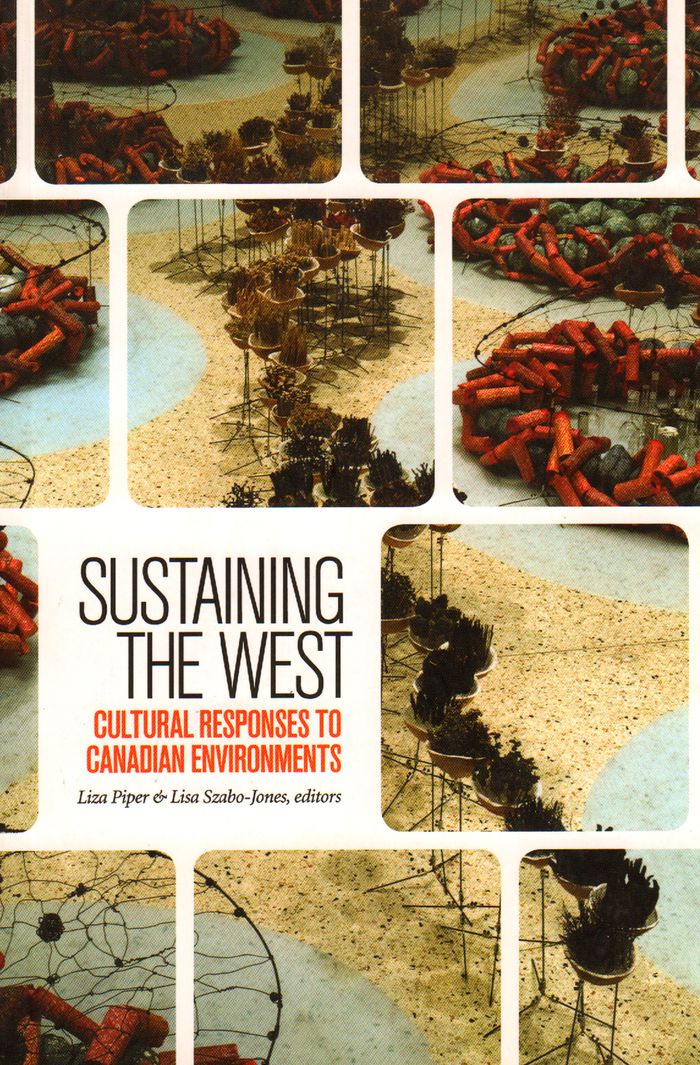$49.50
(disponible sur commande)
Résumé:
'Energy Culture' is a book about oil’s firm grip on our politics and everyday lives. It brings together essays and artwork produced in a collaborative environment to stimulate new ways of thinking and to achieve a more just and sustainable world.
novembre 2019
Energy culture: art and theory on oil and beyond
Actions:
Prix:
$49.50
(disponible sur commande)
Résumé:
'Energy Culture' is a book about oil’s firm grip on our politics and everyday lives. It brings together essays and artwork produced in a collaborative environment to stimulate new ways of thinking and to achieve a more just and sustainable world.
$25.00
(disponible sur commande)
Résumé:
La catastrophe écologique et sociale est déjà là. Non pas après nous, mais à côté de nous. Or, en raison de notre position privilégiée au sein des sociétés riches du Nord, nous ne la percevons pas. Le sociologue allemand Stephan Lessenich fait la démonstration que le déluge social, écologique et économique ne concerne pas que les générations futures, mais doit être(...)
septembre 2019
À côté de nous le déluge : la société d'externalisation et son prix
Actions:
Prix:
$25.00
(disponible sur commande)
Résumé:
La catastrophe écologique et sociale est déjà là. Non pas après nous, mais à côté de nous. Or, en raison de notre position privilégiée au sein des sociétés riches du Nord, nous ne la percevons pas. Le sociologue allemand Stephan Lessenich fait la démonstration que le déluge social, écologique et économique ne concerne pas que les générations futures, mais doit être considéré comme un phénomène qui affecte déjà les pays pauvres du Sud. Si le concept des externalités négatives n’est pas nouveau en économie, Lessenich fait exploser ce cadre d’analyse et montre comment les changements climatiques et la crise des migrants rendent matérielle et visible la société d’externalisation et son prix.
Tout peut changer
$34.95
(disponible en magasin)
Résumé:
Oubliez tout ce que vous croyez savoir sur le réchauffement climatique. La « vérité qui dérange » ne tient pas aux gaz à effet de serre, la voici : notre modèle économique est en guerre contre la vie sur Terre. Au-delà de la crise écologique, c’est bien une crise existentielle qui est en jeu – celle d’une humanité défendant à corps perdu un mode de vie qui la mène à sa(...)
Tout peut changer
Actions:
Prix:
$34.95
(disponible en magasin)
Résumé:
Oubliez tout ce que vous croyez savoir sur le réchauffement climatique. La « vérité qui dérange » ne tient pas aux gaz à effet de serre, la voici : notre modèle économique est en guerre contre la vie sur Terre. Au-delà de la crise écologique, c’est bien une crise existentielle qui est en jeu – celle d’une humanité défendant à corps perdu un mode de vie qui la mène à sa perte. Pourtant, prise à rebours, cette crise pourrait bien ouvrir la voie à une transformation sociale radicale susceptible de faire advenir un monde non seulement habitable, mais aussi plus juste. On nous a dit que le marché allait nous sauver, alors que notre dépendance au profit et à la croissance nous fait sombrer chaque jour davantage. On nous a dit qu’il était impossible de sortir des combustibles fossiles, alors que nous savons exactement comment nous y prendre – il suffit d’enfreindre toutes les règles du libre marché : brider le pouvoir des entreprises, reconstruire les économies locales et refonder nos démocraties. On nous a aussi dit que l’humanité était par trop avide pour relever un tel défi. En fait, partout dans le monde, des luttes contre l’extraction effrénée des ressources ont déjà abouti et posé les jalons de l’économie à venir.
$29.95
(disponible sur commande)
Résumé:
Inscrit dans la série proposée par le Laboratoire d’excellence Futurs Urbains, cet ouvrage consacré à la justice environnementale croise les analyses de Lydie Laigle et Sophie Moreau sur la circulation et l’appropriation de cette notion dans des cadres géographiques variés : États-Unis, France, Madagascar. À travers ses différentes interprétations, la justice(...)
novembre 2018
Justice et environnement: les citoyens interpellent le politique
Actions:
Prix:
$29.95
(disponible sur commande)
Résumé:
Inscrit dans la série proposée par le Laboratoire d’excellence Futurs Urbains, cet ouvrage consacré à la justice environnementale croise les analyses de Lydie Laigle et Sophie Moreau sur la circulation et l’appropriation de cette notion dans des cadres géographiques variés : États-Unis, France, Madagascar. À travers ses différentes interprétations, la justice environnementale interroge le devenir des relations des sociétés à l’environnement dans un contexte de crise environnementale et de globalisation. Elle pose la question des inégalités sociales face à l’environnement et du rôle joué par les institutions et les mobilisations citoyennes dans la reconnaissance des injustices vis-àvis des détériorations environnementales. Ce livre explore les défis démocratiques soulevés par ces injustices.
$27.95
(disponible sur commande)
Résumé:
Depuis une décennie environ, une scène des pensées de l'écologie a émergé en langue française. Comment décrire et nommer ce nouveau continent à la croisée des luttes, des arts et des sciences ? A quelles oeuvres collectives ses acteurs sont-ils en train de donner vie ? Quelles sont les grandes dynamiques en cours ? Comment l'écologie transforme-t-elle nos façons de penser(...)
octobre 2019
Un sol commun : lutter, habiter, penser
Actions:
Prix:
$27.95
(disponible sur commande)
Résumé:
Depuis une décennie environ, une scène des pensées de l'écologie a émergé en langue française. Comment décrire et nommer ce nouveau continent à la croisée des luttes, des arts et des sciences ? A quelles oeuvres collectives ses acteurs sont-ils en train de donner vie ? Quelles sont les grandes dynamiques en cours ? Comment l'écologie transforme-t-elle nos façons de penser et d'agir ? Une sélection d'auteurs, mais aussi de journalistes, éditeurs, traducteurs, libraires, militants... répond à ces questions.
Un futur renouvelable
$27.00
(disponible en magasin)
Résumé:
Intuitive Alphabet by artist Michele Oka Doner is both an alphabet book and an artistic meditation on the connection between humans and nature. Minimal text, handwritten by the artist, is paired with photographs of sea objects that represent forms.
septembre 2019
Un futur renouvelable
Actions:
Prix:
$27.00
(disponible en magasin)
Résumé:
Intuitive Alphabet by artist Michele Oka Doner is both an alphabet book and an artistic meditation on the connection between humans and nature. Minimal text, handwritten by the artist, is paired with photographs of sea objects that represent forms.
Le toucher du monde
$45.95
(disponible sur commande)
Résumé:
La conception de la nature dominante dans la tradition occidentale est indissociable d'une pensée de la technique définie comme son contraire. Ce dualisme est au coeur des débats actuels sur l'avenir de l'humanité à l’ère de l’anthropocène que nous pourrions résumer par : Pensée écologiste d'une part, pensée posthumaniste et techniciste de l'autre.
septembre 2019
Le toucher du monde
Actions:
Prix:
$45.95
(disponible sur commande)
Résumé:
La conception de la nature dominante dans la tradition occidentale est indissociable d'une pensée de la technique définie comme son contraire. Ce dualisme est au coeur des débats actuels sur l'avenir de l'humanité à l’ère de l’anthropocène que nous pourrions résumer par : Pensée écologiste d'une part, pensée posthumaniste et techniciste de l'autre.
Le piège Énergie Est
$17.00
(disponible en magasin)
Résumé:
L’oléoduc Énergie Est n’est pas qu’un simple tuyau où couleraient 2 000 litres de pétrole à la seconde. Donner le feu vert au projet de TransCanada, c’est s’exposer à des risques majeurs de catastrophe écologique (860 cours d’eau traversés, déversement possible de l’équivalent de 36 déraillements à Lac-Mégantic) pour de bien faibles retombées économiques. C’est aussi(...)
Le piège Énergie Est
Actions:
Prix:
$17.00
(disponible en magasin)
Résumé:
L’oléoduc Énergie Est n’est pas qu’un simple tuyau où couleraient 2 000 litres de pétrole à la seconde. Donner le feu vert au projet de TransCanada, c’est s’exposer à des risques majeurs de catastrophe écologique (860 cours d’eau traversés, déversement possible de l’équivalent de 36 déraillements à Lac-Mégantic) pour de bien faibles retombées économiques. C’est aussi s’enfermer dans une logique capitaliste délétère qui nous pousse à extraire et à consommer toujours davantage de pétrole sale, fortement générateur de gaz à effet de serre. Par le fait même, c’est abandonner les indispensables cibles en matière de lutte contre les changements climatiques afin d’éviter une hausse dramatique de la température du globe. Éric Pineault rassemble les pièces du casse-tête Énergie Est et expose tous les pièges du complexe des sables bitumineux pour bloquer sans compromis ce projet de pipeline. En ce début de XXIe siècle, nous avons une responsabilité climatique historique. La transition énergétique est incontournable. Le monde nous regarde.
$42.99
(disponible sur commande)
Résumé:
Western Canada's natural environment faces intensifying threats from industrialization in agriculture and resource development, social and cultural complicity in these destructive practices, and most recently the negative effects of global climate change. The complex nature of the problems being addressed calls for productive interdisciplinary solutions. In this book,(...)
septembre 2014
Sustaining the west: cultural responses to Canadian environments
Actions:
Prix:
$42.99
(disponible sur commande)
Résumé:
Western Canada's natural environment faces intensifying threats from industrialization in agriculture and resource development, social and cultural complicity in these destructive practices, and most recently the negative effects of global climate change. The complex nature of the problems being addressed calls for productive interdisciplinary solutions. In this book, arts and humanities scholars and literary and visual artists tackle these pressing environmental issues in provocative and transformative ways. Their commitment to environmental causes emerges through the fields of environmental history, environmental and ecocriticism, ecofeminism, ecoart, ecopoetry, and environmental journalism. This indispensable and timely resource constitutes a sustained cross-pollinating conversation across the environmental humanities about forms of representation and activism that enable ecological knowledge and ethical action on behalf of Western Canadian environments, yet have global reach. Among the developments in the contributors' construction of environmental knowledge are a focus on the power of sentiment in linking people to the fate of nature, and the need to decolonize social and environmental relations and assumptions in the West.
livres
$27.95
(disponible sur commande)
Résumé:
The violence wrought by climate change, toxic drift, deforestation, oil spills, and the environmental aftermath of war takes place gradually and often invisibly. Using the innovative concept of “slow violence” to describe these threats, Rob Nixon focuses on the inattention we have paid to the attritional lethality of many environmental crises, in contrast with the(...)
Slow violence and the environmentalism of the poor
Actions:
Prix:
$27.95
(disponible sur commande)
Résumé:
The violence wrought by climate change, toxic drift, deforestation, oil spills, and the environmental aftermath of war takes place gradually and often invisibly. Using the innovative concept of “slow violence” to describe these threats, Rob Nixon focuses on the inattention we have paid to the attritional lethality of many environmental crises, in contrast with the sensational, spectacle-driven messaging that impels public activism today. Slow violence, because it is so readily ignored by a hard-charging capitalism, exacerbates the vulnerability of ecosystems and of people who are poor, disempowered, and often involuntarily displaced, while fueling social conflicts that arise from desperation as life-sustaining conditions erode.
livres
mars 2013
